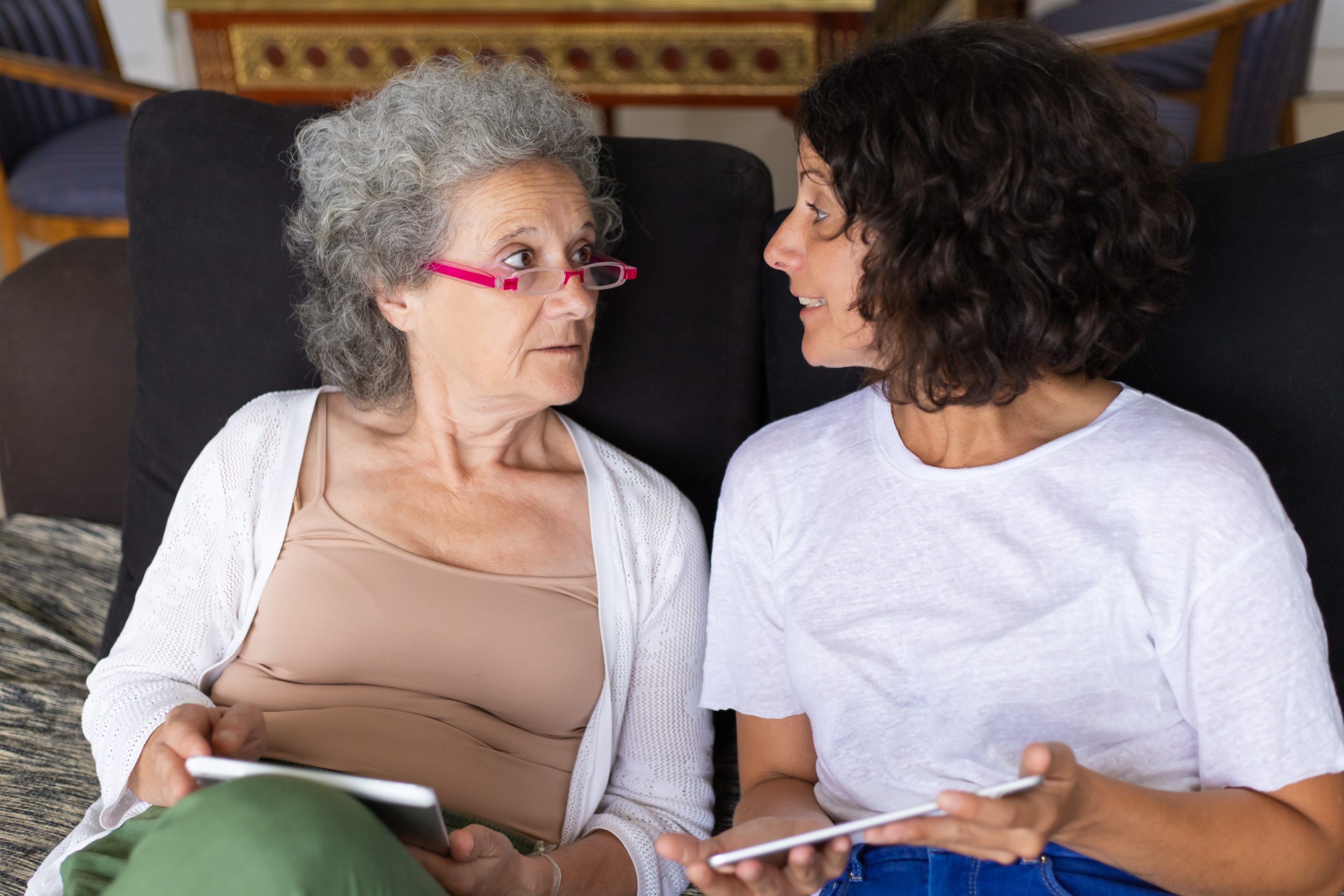How to Communicate with Elderly Loved Ones
As our loved ones age, staying connected through clear and compassionate communication becomes increasingly important. Whether you’re talking to aging parents, grandparents, or an elderly friend, effective communication helps reduce loneliness, strengthen relationships, and support emotional well-being.
In this post, we’ll explore practical ways to communicate effectively with elderly loved ones, including how to overcome common barriers like hearing loss or memory issues, and how to build trust through active listening and empathy.
1. Practice Active Listening with Elderly Family Members
One of the most powerful ways to improve communication with older adults is to listen attentively. Make eye contact, put away distractions, and allow your loved one the time they need to speak. This not only shows respect but helps them feel valued and heard.
2. Speak Clearly, Kindly, and at a Comfortable Pace
Many seniors experience hearing loss or slower processing speeds. Speak slowly and clearly in a friendly tone. Instead of raising your voice, try rephrasing your words if they don’t understand. Simple, direct language goes a long way.
3. Minimize Distractions to Create a Comfortable Setting
Find a quiet place to talk, away from background noise like TV or phone alerts. A calm environment improves focus and makes it easier for elderly loved ones to engage in meaningful conversations.
4. Use Nonverbal Communication for Added Clarity
Body language can be just as important as words. Smile, nod, and use open gestures to help convey warmth and understanding. A gentle touch on the arm (if appropriate) can also offer reassurance and connection.
5. Respect Their Life Experience and Stories
Elderly individuals have a wealth of memories and life lessons to share. Asking about their past not only shows interest—it also boosts their self-esteem and encourages more open dialogue. It’s a great way to build emotional connection with aging parents or grandparents.
6. Adapt Your Approach Based on Cognitive and Physical Needs
Some seniors may experience cognitive decline or dementia. Use short sentences, visual cues, or written notes to support understanding. Be patient if they repeat themselves or lose their train of thought.
7. Include Them in Conversations That Affect Their Lives
Whether you’re discussing care options, daily routines, or future plans, make sure your elderly loved one feels involved. Empowering them in the decision-making process reinforces dignity and trust.
Final Thoughts
Communicating with elderly loved ones isn’t just about speaking—it’s about being present, respectful, and adaptable. By using these simple yet effective communication strategies, you’ll not only improve day-to-day interactions but also create deeper emotional connections that truly matter.
Whether you’re a caregiver, an adult child, or just trying to better connect with an aging relative, these tips can help you foster stronger, more loving relationships.
Let’s Stay Connected
Caring for an aging parent or elderly loved one can be deeply rewarding—but it also comes with challenges. If you ever feel unsure about how to strengthen those conversations or you’re noticing changes in how your loved one communicates, you’re not alone. Geriatric Resource Centre can help you navigate this journey with compassion and clarity.
Need support or want to learn more about in-home care options? Contact us today to schedule a friendly, no-pressure consultation.
Together, we can make sure your loved one feels truly heard, understood, and cared for—every step of the way.

